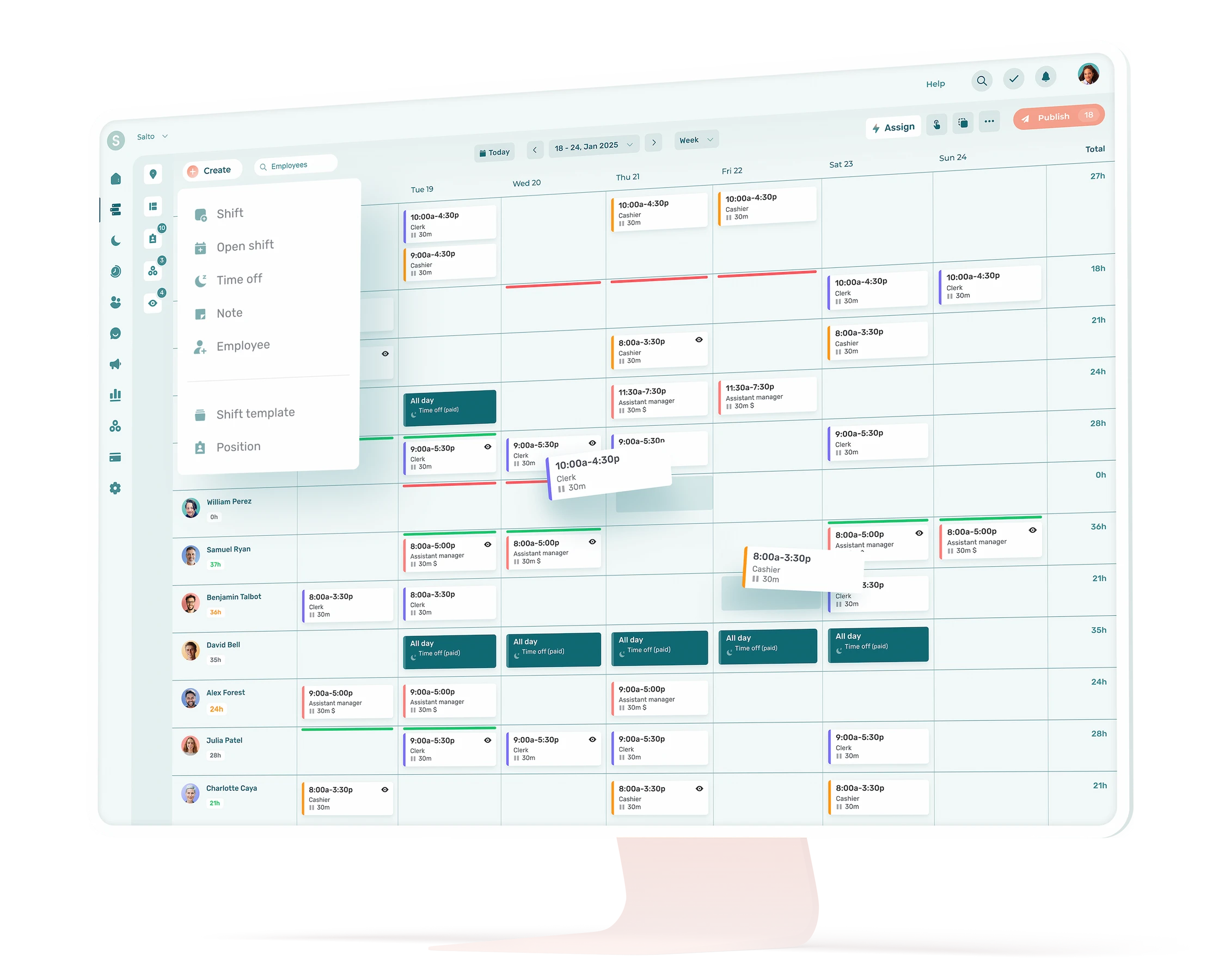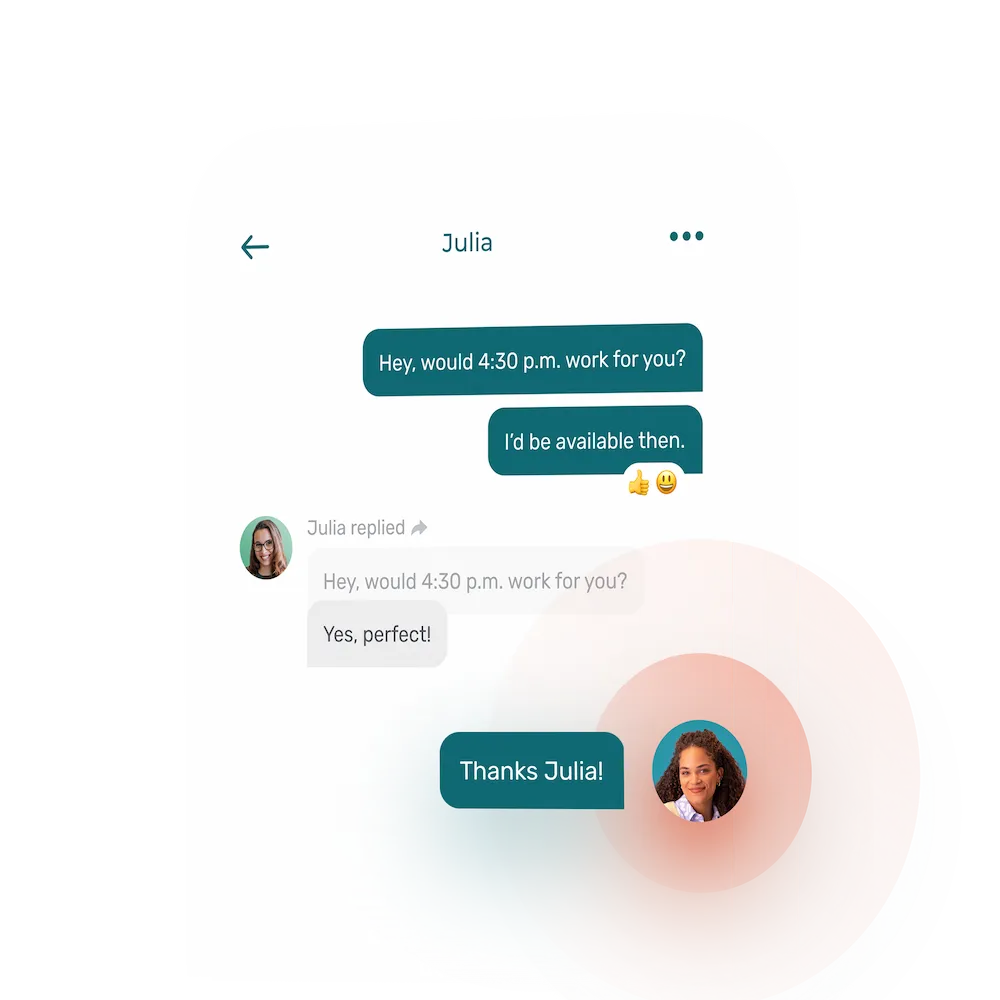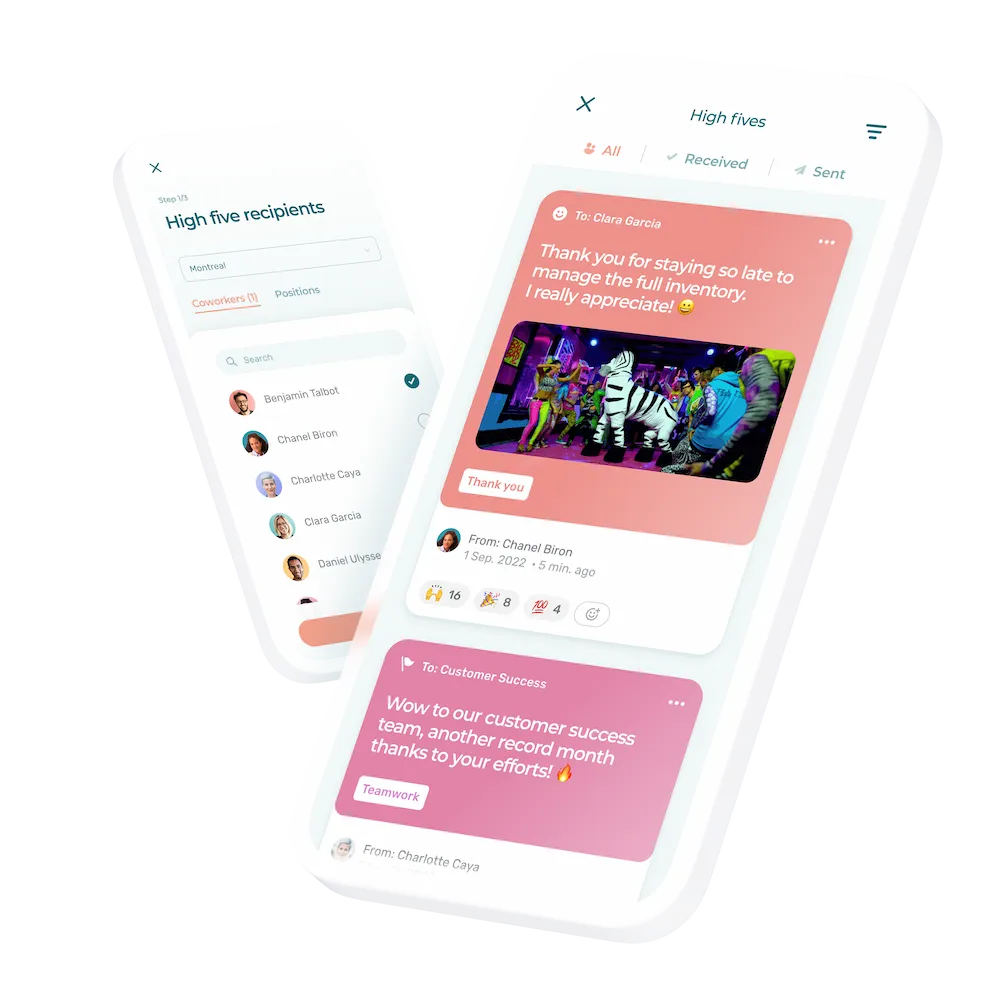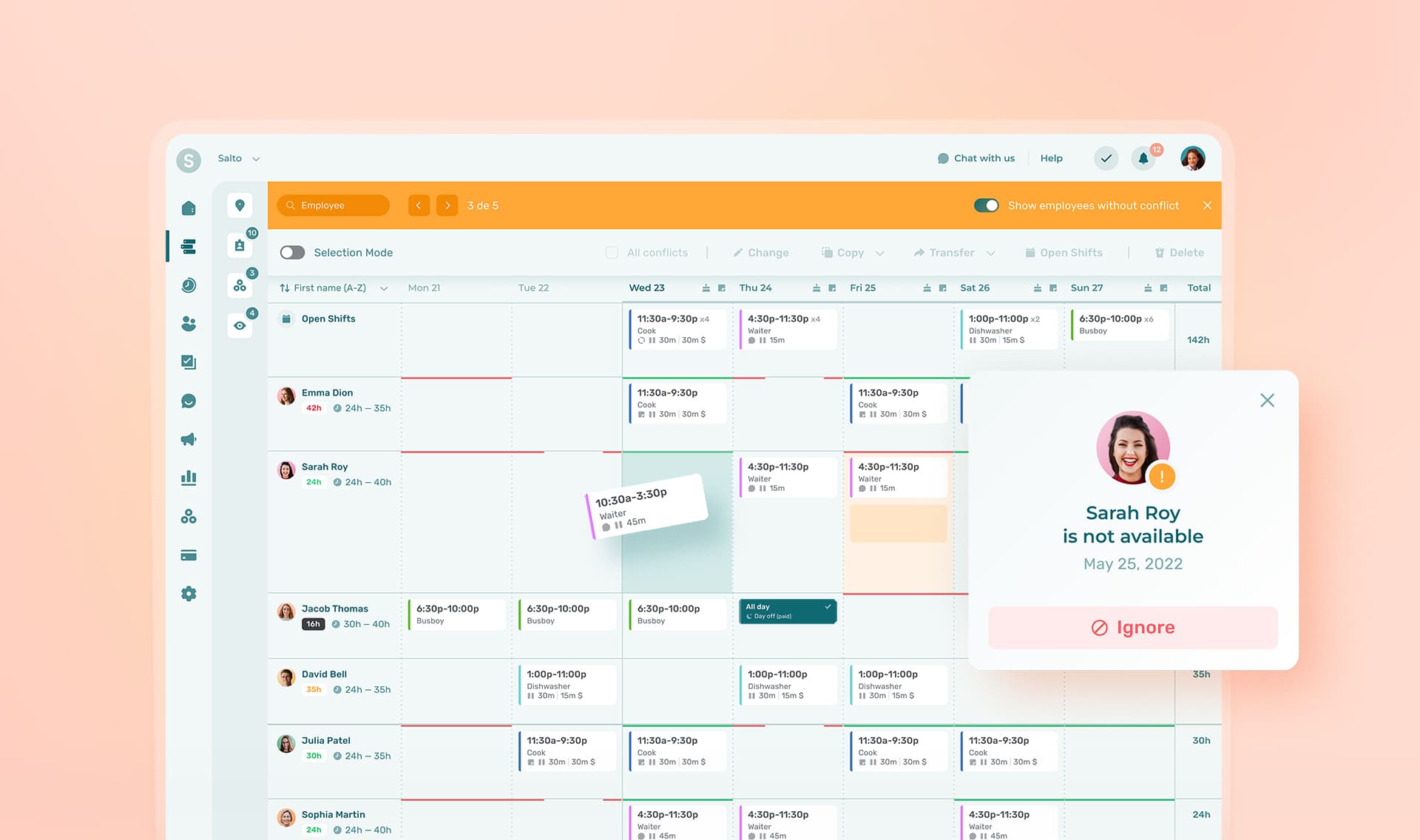Learning how to successfully manage restaurant staff takes time and effort. In this article, we’ll show you which managerial skills and best practices to focus on to create happy, productive food service teams.
This will help you know how to lead a restaurant team effectively, so you can improve customer service and grow your established or new restaurant business.
Key Takeaways:
- Great restaurant management can ease recruitment, improve the customer experience, reduce staff turnover, and keep employees engaged.
- Staff scheduling software can help restaurant managers be more effective and save time in their day-to-day responsibilities.
- Clear communication with staff is vital, from setting goals and boundaries to clarifying on-the-job expectations and availability.
- The skills and qualities of a good restaurant manager include leadership skills, strategic thinking, coaching skills, time management, and more.
The Importance of Good Restaurant Managers
Easier Staff Recruiting
The restaurant industry has not been immune to the chronic labor shortage, which intensified during the pandemic. In the US only, there were 1 million fewer restaurant industry employees at the end of 2021 compared to pre-pandemic levels.
A good manager who is known for being a pleasure to work with will attract restaurant workers of better quality than someone who has a reputation for being difficult.
See 5 ways to woo restaurant workers
Less Staff Turnover
The restaurant industry has long been plagued by high employee turnover. Bank of America estimates that turnover across the accommodation and food services sector will rise to 61.7% in 2025, highlighting ongoing workforce instability that continues to affect restaurants in particular.
Good managers create a healthy and enjoyable work environment that promotes employee productivity and retention. Productive, happier employees tend to stay longer in their jobs.
See 8 tips to boost your employee retention
Greater Employee Engagement
According to Gallup, employee engagement should be among a manager’s top priorities.
Managers can improve staff engagement by:
- Ensuring employees know what work needs to be done
- Taking their preferences and work-life balance into account when creating work schedules
- Supporting and advocating for staff when needed
- Explaining to employees how their work contributes directly to the success of the restaurant business
- Asking employee feedback on a regular basis
Set Expectations and Clear Team Roles
Great restaurant managers take the guesswork out of their team’s on-the-job experience, with clearly defined expectations, roles, and responsibilities. Uncertainty around what employees should be doing is a leading source of anxiety across many industries. This is only amplified in the fast-paced, high-stress restaurant environment.
The restaurant manager’s role is to clearly direct individual team members, so that everyone’s working together as a cohesive, unified whole—each person a valuable part of a well-oiled machine.
12 Industry Tips on Managing Restaurant Staff
Below are some industry-proven restaurant management tips that you can put to immediate use to better manage your team.
1. Simplify Scheduling With a Staff Scheduling Software
Although a simple restaurant schedule template can be effective, staff scheduling software is a game-changer for restaurants of all sizes, as it simplifies employee scheduling into a quick, intuitive process—saving hours previously spent manually scheduling work shifts.
And with better visibility of team schedules and availability, it also significantly reduces the chance of conflicts and scheduling errors.
See how easy it is to build, manage and keep track of online employee work schedules in the restaurant industry and share them with your staff members instantly, anywhere with Agendrix.
Visit our restaurant resource center for a complete list of free downloadable templates specifically designed for busy restaurant managers.
2. Find a Mentor
If you want to learn how to do something right, the fastest approach is to team up with someone with experience who is already doing it. A mentor can be a valuable asset for any new manager.
If there’s no one in your immediate circle who you can turn to, go to an online restaurant management forums where managers are asking and sharing knowledge, such as websites like Reddit or Quora.
3. Improve the Customer Experience
According to the National Restaurant Association, 56% of surveyed adults said they’d rather spend money on a dining experience than simply going to the store to buy food.
Customers aren’t coming to your food establishment simply out of convenience, but also for enjoyment. In other words, they are looking for a great customer experience.
4. Strive for Customer Satisfaction
Customer issues are common in restaurants—such as dietary restrictions your restaurant simply cannot accommodate. Whenever possible, managers should make customer satisfaction their end goal. It will make the difference between glowing online reviews—or reputation-destroying restaurant reviews.
But you also need to set a limit to how far you are willing to go. As an effective leader, you also need to also shield restaurant staff from the wrath of unreasonable customers, or run the risk of losing valuable assets such as your top staff.
5. Use Marketing to Your Advantage
Great marketing is the gift that keeps on giving—and it’s just as effective at motivating your staff as it is at bringing new customers through the door.
Word-of-mouth marketing in particular, such as glowing online reviews and recommendations, can boost employee morale and foster pride in the workplace. So share positive feedback with the team regularly and shine a light on the joy they’re bringing your customers.
6. Prioritize Staff Retention
According to the National Restaurant Association, 75% of restaurant operators saying recruiting and retaining workers was their top business challenge—the highest level recorded in the 20 years the group has tracked this data. Putting in place benefits like work-life balance and flexible schedules are just two examples of easy ways to improve employee retention.
7. Get To Know Your Staff
Meet with your restaurant staff one-on-one. Ask them about their goals and challenges, what they like about their jobs, and what changes would they like to see. Really listen to what they have to say and make an effort to integrate their comments into your daily operations.
8. Create a Sense of Team Spirit
Make time for staff members to meet regularly as a large group, either socially or at work. Talk to them about your business goals and expectations. Encourage them to share their comments and feedback. Celebrate important milestones and holidays as a team.
9. Use Clear Communication to Set Expectations
Clear communication is the unsung hero of any successful restaurant. Your staff need to understand exactly what’s expected of them in daily operations; anything less is a recipe for underperformance or employee burnout.
The team should also feel comfortable communicating with management so that issues and concerns can be identified and resolved as quickly as possible.
10. Define Boundaries and Goals
To aid in the previous point, create and document important team boundaries and goals. Review them during a team meeting to make sure they’re clear to everyone. Make sure boundaries are applied equally to all team members.
11. Know When to Multitask
Managing a restaurant can feel like you need to do a million things at once. But dividing your attention between many tasks can lead to mistakes, unhappy customers, and neglected staff.
This is why it’s important to understand when—and how—to multitask. Always keep an eye on quality, prioritize the most important tasks, and don’t be afraid to delegate.
12. Do Someone Else’s Job
If you have never been part of the front-of-house or back-of-house staff before, walk a mile in your staff’s shoes by filling the role of a server, line cook or barback for a shift.
You’ll gain a better understanding of your staff’s needs and challenges. It will also build trust with staff and make you a more effective manager.
Key Management Skills for Restaurant Managers
Few people are natural born managers. In fact, 9 in 10 restaurant managers started in an entry-level position, and gradually developed their management skills as they worked their way up.
Here are some of the key skills both new managers and seasoned restaurant managers working in the hospitality industry should have.
Leadership Skills
Human relationships are at the heart of any business. This rings equally true when managing a restaurant. As the general manager of your restaurant business, certain skills are needed to be an effective leader.
Whether you’re the team leader of a staff composed mainly of part-time high school students or experienced restaurant professionals, your employees look to you to set the tone and pace. Here are our best tips on how to be a more effective leader.
- Create an environment of trust and respect. This applies to your interactions with your employees, their interactions with one another and staff interactions with customers.
- Let staff know you have their back—especially new staff. If an employee is having difficulty with a particular task or grasping the restaurant menu, make sure they know you are there to help.
- Recognize the hard work of employees. They’ll be more willing to go the extra mile, and more receptive to your feedback if you need to provide constructive criticism of their work performance. Spending time on the floor and keeping track of the great work being done by new team members and experienced staff will also fill you with pride.
Communication Skills
Things can get chaotic very rapidly in a busy restaurant. With good communication, managers can keep everything under control, with paying customers being none the wiser of the maelstrom taking place behind the scenes.
- Hold pre-shift meetings as a large group whenever possible to discuss the details of the day. Set and communicate clear expectations and make sure everyone knows their responsibilities.
- Speak to restaurant staff in a clear, timely and respectful manner at all times, but especially during rush periods and when discussing concerns regarding your staff’s performance.
- If in doubt, have the other person confirm that the message has been well received.
- Remember that good communication is a two-way street. If an employee is trying to tell you something, take the time to listen.
Coaching and Mentoring Skills
Coaching and mentoring are pivotal skills for any restaurant manager aiming to cultivate a team of motivated and productive employees. It’s not just about telling them what to do; it’s about inspiring them and nurturing their talent.
- Provide constructive feedback. Positive reinforcement with constructive criticism will help staff understand what they’re doing well and where they can improve.
- Tailor coaching to individual needs. Each staff member has unique strengths and areas for growth. Personalize your approach in one-on-one coaching sessions to maximize each employee’s potential.
- Lead by example. Demonstrate the behaviors and work ethic you expect from your team.
Time Management Skills
Anyone who is willing to work in a restaurant needs to have good physical stamina and good time management. It’s the manager’s role to ensure everything runs smoothly and in a timely manner.
- Schedule enough staff for each shift. The magic number may depend on the time of day, the day of the week or the time of year, but also on your staff’s level of experience and expertise.
- Coordinate teams properly so that customer service isn’t negatively impacted when employees take breaks and shifts transition.
- Set clear expectations that are realistic. Even though you may aspire for your staff to work at a certain productivity level, the fact is they just might not be there yet. If needed, modify tasks, work hours or schedule additional staff.
- Preemptively solve unnecessary time management problems by making sure pre-shift prep work and closing procedures are done properly.
Strategic Thinking
Strategic thinking skills are crucial for restaurant managers who want a competitive advantage and long-term success. It’s about seeing the big picture and making smart, future-focused decisions.
- Plan ahead with staff scheduling and inventory. Anticipate busy periods and ensure you have enough hands on deck and ingredients in stock.
- Make informed decisions based on data. Use customer feedback, sales figures, and market trends to guide your choices in menu pricing, marketing strategies, and more.
- Continuously evaluate and adjust your strategy. The restaurant landscape is always changing and evolving, so regularly assess your approach and adapt as necessary.
- Balance cost-efficiency with quality. Find the sweet spot where you can minimize expenses without compromising on your customers’ dining experience.
- Cultivate a strong brand identity. Develop a clear and appealing brand that resonates with your target audience and guides your marketing efforts.
Problem-Solving and Conflict Management Skills
Rare is the restaurant or bar that doesn’t encounter the odd problem or conflict. From angry customers to disgruntled staff, your prompt and effective intervention will make a huge difference on your establishment’s reputation. It will also help to build a stronger team.
- Intervene quickly and be willing to listen. Tackle each issue with a positive attitude and the firm belief that a solution that’s acceptable to everyone can be found.
- Steer clear of the he-said-she-said or the blame game. Remind all parties that the goal is ensure a positive and supportive work environment for all employees, while meeting business needs and customer service demands.
- Encourage the entire team to propose solutions to problems and conflicts. Your team is a great resource that you should tap into.
Flexibility Skills
Being flexible is always a must when dealing with the public. This goes double for those working in the hospitality business such as restaurant managers, who often hire employees that tend to be younger, less experienced or part-time workers.
- Expect the unexpected. Be prepared if an employee suddenly calls in sick or a huge group of customers walks through the door. Even though you’re the manager, you may have to play busboy for a shift or two.
- Follow best practices for employee scheduling, such as letting employees swap shifts, provided the staff on the floor can meet business needs and customer expectations. Just decide how you want to shift swapping to be done.
Organizational Skills
Restaurant managers are constantly juggling different responsibilities. Employee management is just one facet of the job. This includes employee recruiting, hiring, onboarding, scheduling, time tracking, payroll, absences and leave, restaurant staff training, recognition, discipline. And on and on and on.
To keep all these balls in the air, restaurant managers need to be incredibly organized.
- Adopt reliable employee management tools. User-friendly software like Agendrix is used by bar and restaurant managers across North America to effortlessly manage employee scheduling, time tracking, and more. It also makes handling last-minute schedule changes a breeze.
Team-building Skills
Restaurant staff are more than simply workers. They are ambassadors of your establishment. Ensuring that your front-of-house and back-of-house staff work together harmoniously is vital—not just for your own sanity, but for attracting more customers and building repeat business to your restaurant as well.
- Accept that it takes time to build trust with employees and a sense of team spirit. As a manager, these are areas that require ongoing effort.
- Hold team-building activities with your staff to speed up the process.
- Properly onboard new team members to quickly make them feel like they are part of the family.
Start Optimizing Your Restaurant Staffing Processes With Agendrix
Agendrix employee management software is a user-friendly tool used widely by managers working in restaurants & bars, retail, hospitals and other industries to optimize employee scheduling and improve employee satisfaction.
With Agendrix, you can:
- Streamline staff scheduling to save time, reduce complexity, and avoid scheduling errors
- Share updated schedules with employees quickly and easily
- See your team’s availability as you schedule, so you can navigate staff PTO and avoid overbooking
- Take the stress out of staff scheduling for special events that require more hands on deck
- Sync scheduling with Google Calendar for better planning and improved visibility
- Instantly confirm when staff members see new shift requests
What Are the Responsibilities of a Restaurant Manager?
The different responsibilities of a restaurant manager or restaurant owner include:
- Oversee labor management: recruit and train employees, supervise staff, etc.
- Handle budgets and optimize labor costs
- Create staff schedules
- Plan menus
- Ensure compliance with licensing, worker and food safety laws, etc.
- Promote the restaurant business, such as with print ads and social media ads
- Oversee inventory management and order supplies
- Handle customer inquiries and complaints
- Take reservations, greet customers and advise them
- Liaise with customers, employees, suppliers, authorities, etc.
- Improve restaurant operations as needed to attract more customers, cut costs, grow the business
How Do You Lead a Restaurant Team?
There are 5 practices that all good restaurant managers and restaurant owners follow.
- They communicate clear expectations and goals to employees.
- They understand that their role is to solve problems, ensure customer satisfaction and promote employee engagement.
- They view their employees as a valuable asset, and encourage collaboration and feedback from staff members.
- They spend a lot of time on the floor, lending a hand whenever needed.
- They spend one-on-one time with employees and recognize their efforts.
What 3 Qualities Make a Good Restaurant Manager?
All successful restaurant managers share the same traits:
- They are effective leaders who care about employee well-being.
- They have a positive, can-do attitude focused on solving problems.
- They are flexible and efficient multi-taskers able to juggle many different responsibilities.
How Can Managers Provide a Better Work-Life Balance for Restaurant Staff?
Managers can use employee scheduling software to make it easier take into consideration things that lead to healthier work-life balance, such as:
- Paid time off
- Number of hours worked
- Number of part-time staff
- Shift swapping
- Rotating schedules for weekends off
- Etc.












